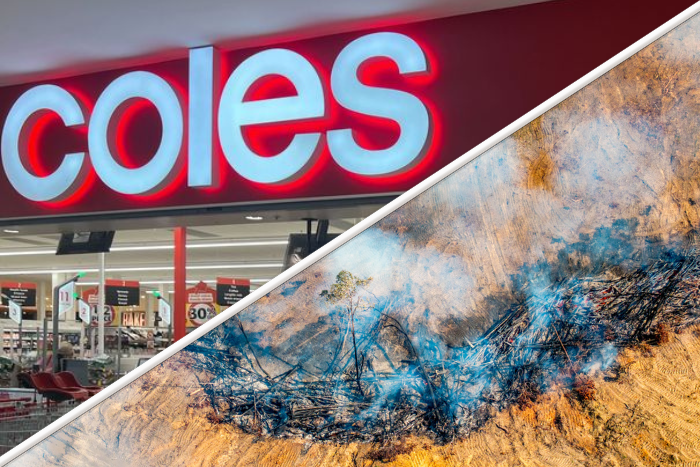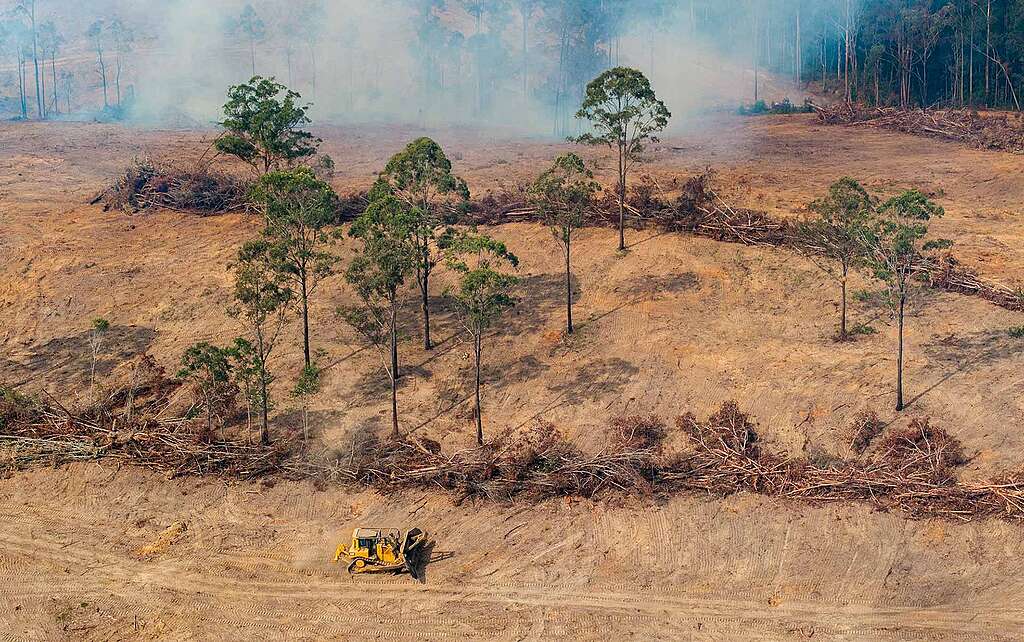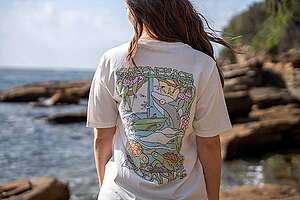Beef production is driving Australia’s deforestation crisis, and Coles is the one of the biggest buyers of beef. But critically, it is the only big supermarket in Australia without a deforestation policy.

Coles is a huge player in the Australian beef industry. The supermarket giant operates over 800 stores Australia wide and accounts for approximately 16% of all of Australia’s domestic beef sales. Because of this outsized impact on the beef industry, Coles’s supply chain decisions have significant consequences for our native forests and endangered wildlife.
However, Coles currently do not have any commitment on addressing deforestation in its supply chain.
When Greenpeace released the Deforestation Scorecard earlier this year, we assessed the major beef buyers in the country on their deforestation commitments and policies. Coles scored 0.75/10 – one of the lowest scores.
The supermarket giant scored such a dismal score because:

Coles does not have a commitment to protect forests and other natural ecosystems

Coles has begun reviewing exposure to deforestation in their own brand products but have little detail

Coles is not actively monitoring conversion and deforestation in their supply chain
A crisis that can’t be ignored
This year, Greenpeace research revealed that 2.2 million hectares of forest and bushland was bulldozed in Queensland in just five years — 2.1 million hectares of which was federally-mapped threatened species habitat.
Over 730,000 hectares of this was endangered koala habitat.
Queensland is the epicentre of Australia’s deforestation crisis, and this is being driven primarily by beef production. After exports, the majority of this beef is sold to Australia’s big beef buyers, including Coles.
The alarming rate of deforestation in Australia puts us alongside other deforestation hotspots like Congo and the Amazon basin. Our native wildlife are paying the ultimate price for this destruction, with an estimated 100 million native animals killed, injured or displaced every year because of deforestation.

“In the midst of a biodiversity crisis, companies purchasing beef have a responsibility to eliminate deforestation from their supply chain — a practice which is both unnecessary and out-of-step with global demand for responsibly sourced beef.”
– Gemma Plesman, Senior Campaigner at Greenpeace Australia Pacific
Coles: the last one standing
Some big beef buyers are making strides to address deforestation in their supply chains, but Coles is lagging behind.
ALDI and Woolworths, two of Coles’s main competitors, both announced strong no-deforestation commitments this year:

ALDI South Group is committed to eliminating deforestation and conversion of natural ecosystems across its high deforestation-risk supply chains in Australia by 31 December 2025.

Woolworths Group aims to achieve no-deforestation across its primary deforestation-linked commodities with a target date of 31 December 2025.
Coles: Take Deforestation Off the Shelves
Together with Australian Conservation Foundation and The Wilderness Society, we’re demanding that Coles commits to taking deforestation off the shelves.
But not just a commitment; we’re also seeking a strong and transparent implementation plan from Coles. The supermarket giant must demonstrate that they are able to track beef cattle used in their supply chain back to a property-level and are using the best satellite monitoring tools available.
Australia has one of the world’s leading livestock tracing systems that can track individual animals in supply chains. Coles must work with industry and the Government to link up this tracking system with deforestation data to give full traceability and transparency to its beef supply chains.
Send an email to the Coles CEO, telling them to go deforestation-free now.

ALDI and Woolworths have recently committed to only sourcing deforestation-free beef, but Coles is lagging behind.
Send email
